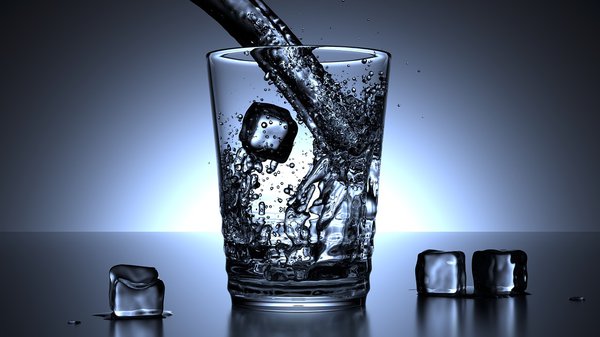Our bodies are made up of more than 60% water, so proper hydration is important every day. During the hot summer months when you sweat more, maintaining enough fluids can be more of a challenge.
When you are dehydrated, your body can't properly flush out toxins and support organ function, especially the heart. Proper hydration is also essential for muscle function.
- MORE HEALTH
- CHOP milestone exemplifies three decades of progress in fetal surgery
- Many Americans with severe asthma don't see a specialist to manage their condition
- Drinking coffee reduces risk of liver disease and cancer, study shows
How do you know you are dehydrated? The experts say that thirst is actually not the best indicator. By the time you are thirsty, you are already dehydrated, they say.
The color of your urine is a better gauge. When it is yellow instead of clear, you need to drink more water.
Symptoms of dehydration include thirst, headache, constipation, fatigue, weakness, dizziness, cramps, vomiting and swollen feet. Severe dehydration can lead to heatstroke.
Best ways to hydrate
Water is always the healthiest beverage choice, but a low-calorie sports drink or some coconut water can also provide the hydration you need. Fresh fruits and vegetables are good sources of water, too.
Just don't only drink sports drinks. Too much of them can be bad for your health, nutrition experts say. Also avoid drinking alcohol and caffeinated beverages like coffee and sodas, which are natural diuretics that pull fluids from the body.
When you are dehydrated, fruit juices can worsen any stomach issues you are experiencing, like diarrhea, so always dilute it so that your drink is 50% water and 50% juice.
The American College of Sports Medicine advises that you consume at least 16 to 20 ounces of fluids before any outside activity, one to two hours ahead of time. During the activity you should also be consuming fluids at regular intervals.
Then afterwards, replace any fluids you lost. According to the American Heart Association, one pint of fluids is needed to replace a pound lost.
Is overhydrating dangerous too? Sports medicine experts say yes. They caution that when you drink too much, you can develop hyponatremia, a condition in which overhydration causes sharp drops in blood sodium levels.
It is important to know your body and how many fluids it needs in different environmental conditions, like extreme heat.
The general rule of thumb has always been to drink about eight 8-ounce glasses of water a day for proper hydration, but each person's needs are too varied for a "one size fits all" rule.
Tamara Hew-Butler, an exercise scientist wrote in a recent opinion piece for The Conversation that there are three factors that best determine a person's hydration needs:
- Body weight. The more you weigh, the more water you need.
- Environmental temperature. When you sweat, you lose more water.
- Physical activity level. Physically active people are going to lose more water through sweat.
Certain medications and the layers of clothes a person is wearing can also affect how much they sweat.
The U.S. Centers for Disease Control and Prevention recommend that athletes calculate their sweat rate (sweat rate = pre-exercise body weight - post-exercise body weight + fluid intake - urine volume/exercise time in hours) to more accurately determine how much fluids they lose during training and competition.
If you are losing over two liters per hour, then you need to hydrate more. Trainers say that body weight needs to be considered as well. A sweat rate of 1.5 liters per hour would still be considered high in a smaller athlete.


